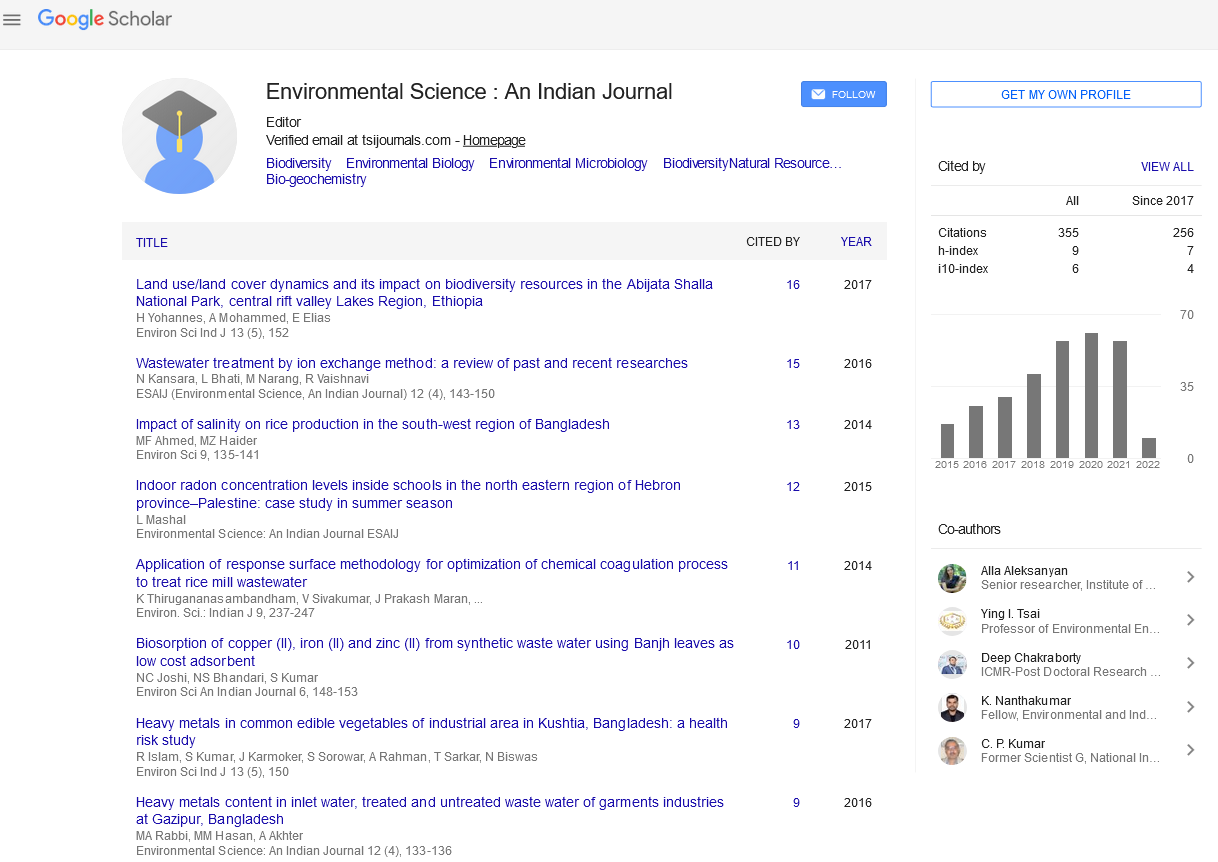Editorial
, Volume: 17( 6) DOI: 10.37532/0974-7451.2021.17(6).e198Editorial on Environmental pollution: causes, effects, and the remedies
Rachit Sharma
Indian Institute of Health Management Research, India
Citation: Rachit Sharma. Editorial Note on Advances in Environmental Biology, J Environ Sci. 2021; 17(3): e199 © 2021 Trade Science Inc.
Abstract
Editorial
Environmental pollution is the unfavorable alteration of our surroundings, wholly or largely as a byproduct of man’s actions, through direct or indirect effects of the changes in the energy pattern, radiation levels, and chemical and physical constitution and abundance of organisms. Environmental pollution is a global problem and is common to both developed as well as developing countries, which attracts the attention of human beings for its severe long-term consequences. The decline in environmental quality as a consequence of pollution is evidenced by loss of vegetation, biological diversity, excessive amounts of harmful chemicals in the ambient atmosphere and in food grains, and growing risks of environmental accidents and threats to life support systems. Pollution is viewed from different angles by different people but is commonly agreed to be the outcome of urban-industrial and technological revolution and rapacious and speedy exploitation of natural resources, increased rate of exchange of matter and energy, and ever-increasing industrial wastes, urban effluents, and consumer goods. Holdgate (1979) defined environmental pollution as the introduction by man, into the environment, of substances or energy liable to cause interference with legitimate uses of environment. Singh (1991) has defined pollution in a very simple manner, i.e., “Disequilibrium condition from equilibrium condition in any system.” This definition may be applied to all types of pollution ranging from physical to economic, political, social, and religious. Over the past couple of decades, various sources of pollution were identified that altered the composition of water, air, and soil of the environment. The substances that cause pollution are known as pollutants. A pollutant can be any chemical (toxic metal, radionuclides, organ phosphorus compounds, gases) or geochemical substance (dust, sediment), biological organism or product, or physical substance (heat, radiation, sound wave) that is released intentionally or inadvertently by man into the environment with actual or potential adverse, harmful, unpleasant, or inconvenient effects. Such undesirable effects may be direct (affecting man) or indirect, being mediated via resource organisms or climate change. Depending on the nature of pollutants and also subsequent pollution of environmental components, the pollution may be categorized as follows:
1. Air Pollution
2. Water Pollution
3. Soil/Land Pollution
4. Noise Pollution
5. Radioactive Pollution
6. Thermal Pollution
Among these types of pollution, air pollution is the main type threatening the environment, humans, plants, animals, and all living organisms. The team at Environmental Science: an Indian Journal provides the authors with a rapid and extremely streamlined editorial process. The Journal provides an encouraging platform for the scholars and researchers to share their significant contributions in this field. Submit manuscript at https://www.tsijournals.com/journals/environmental-science-an-indian-journal submitmanuscript.html or send as an e-mail attachment to the Editorial Office: environmentalscience@tradescience.org

